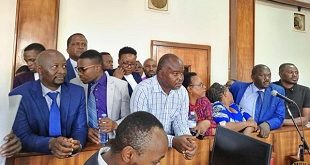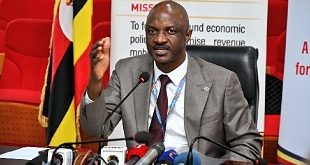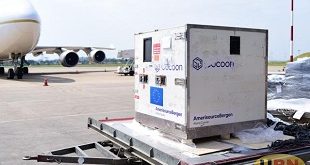
Kampala, Uganda | THE INDEPENDENT | UN Emergency Relief Coordinator Mark Lowcock has called for greater international support in managing the outbreak of Ebola in the Democratic Republic of Congo and the threat it presents to Uganda and other countries in the region.
Lowcock, insisted on the need, to be honest on tackling the hemorrhagic disease adding that unless there is a big scale-up in the response, the word is unlikely to be successful in getting to zero cases.
He, alongside the World Health Organization (WHO) Director-General Tedros Adhanom Ghebreyesus were chairing a high-level event on the outbreak of Ebola in DRC, where 1,647 deaths out of more than 2,400 confirmed and probable cases, recorded since the latest Ebola outbreak was officially declared in the eastern DRC provinces of North Kivu and Ituri last August.
Despite the high toll, the ongoing risk to neighboring countries – not least Uganda, which has just overcome a recent case of DRC-originating Ebola infection – and reports that the disease has reached the large city of Goma for the first time via an infected pastor, Lowcock noted that “just a small fraction” of the USD 2 billion funds to tackle the 2014-16 West Africa Ebola outbreak has been made available to date.
He stated that the cheapest strategy is to invest fully at this point and to stop the current outbreak rather than to under-invest now and have the outbreak linger over a longer timeframe and possibly spread further geographically.
“We have started to get some momentum in former hotspots Butembo and Katwa, but unless we scale up the response we risk losing it,” he added.
WHO Director-General Dr Tedros Ghebreyesus noted that although the Ebola case in Goma, a city of one million people, was very concerning, the agency had already vaccinated 3,000 people and ensured that the infected pastor was receiving care.
But he expressed worry over increasing attacks against deadly attacks on health workers in Ebola-hit areas of the Democratic Republic of the Congo (DRC), including one at the weekend that left two dead. The deaths of two Ebola responders brought to almost 200 the number of attacks on health facilities and workers since January, with seven people killed in the violence to date.
“Just when we start to get control of the virus in one area, it appears in another,” the WHO top official said. “Every attack sets us back. Every attack makes it more difficult to trace contacts, vaccinate and perform safe burials,” Dr Tedros said, adding that every incident gives Ebola an opportunity to spread.
Despite the complexity of the challenge in DRC and the “very high” risk of further spread, the efforts of front-line responders, the Ministry of Health, WHO and partners have been heroic, Tedros said, in reference to the more than 161,000 people vaccinated, 140,000 contacts traced and 71 million travellers screened, at a cost of USD 250 million.
More than 10,000 people have been vaccinated in Uganda, South Sudan and Rwanda. Dr Tedros also noted that after several visits to DRC, he had come to realize that it had many more problems to contend with than Ebola.
“I have travelled to North Kivu six times during this outbreak,” he said. “Frankly, I am embarrassed to talk only about Ebola. Together, we will end this outbreak. But unless we address its root causes – the weak health system, the insecurity and the political instability – there will be another outbreak.”
He also announced that he had decided to reconvene an Emergency Committee as soon as possible to assess the situation in DRC and advise accordingly.
*****
URN
 The Independent Uganda: You get the Truth we Pay the Price
The Independent Uganda: You get the Truth we Pay the Price


